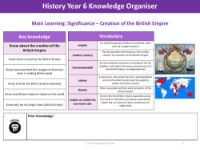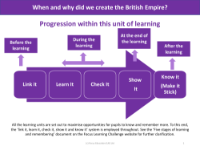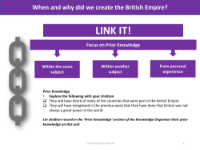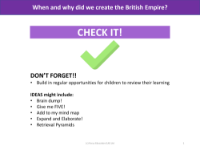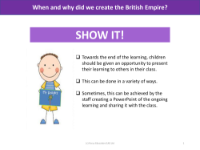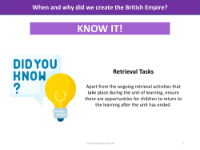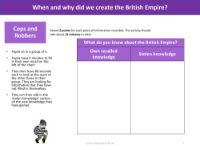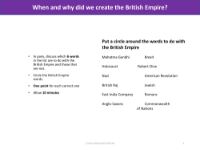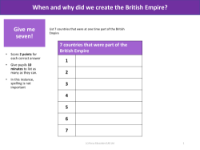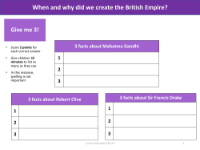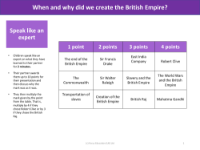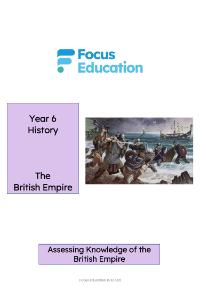Long-term overview - British Empire - Year 6
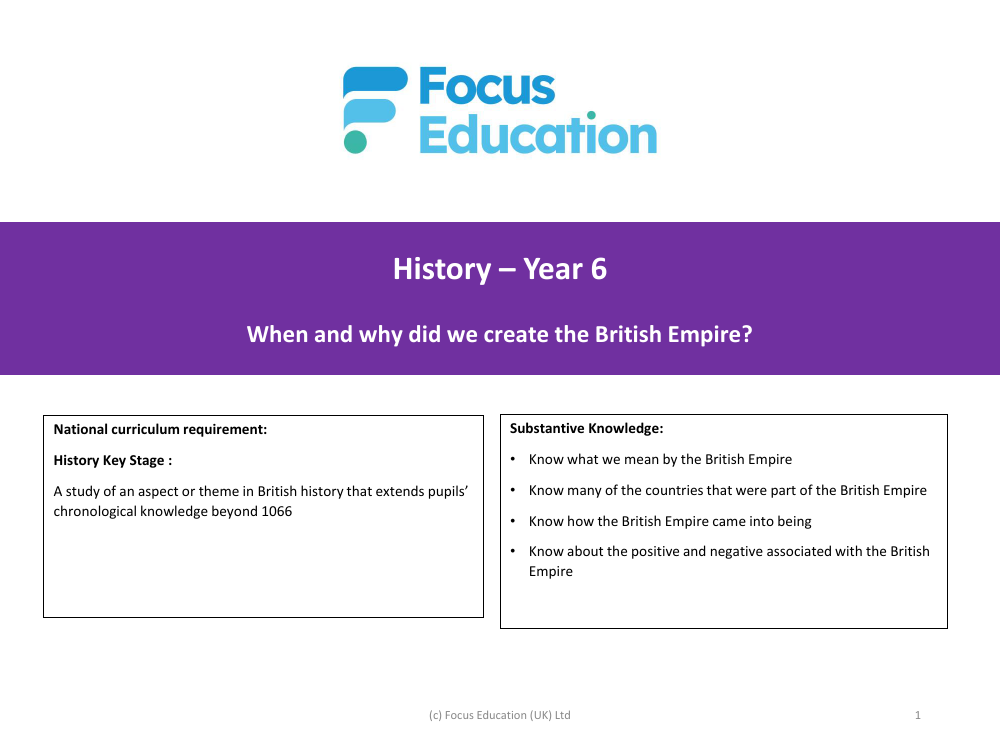
History Resource Description
The Year 6 history curriculum delves into the complexities of the British Empire, fulfilling the national curriculum requirement to extend pupils' chronological knowledge beyond 1066. Students are expected to gain substantive knowledge about the British Empire, including its definition, the numerous countries that were once part of it, the mechanisms of its formation, and the dual nature of its legacy, encompassing both positive and negative aspects. The curriculum prompts students to question the origins of the British Empire, exploring the motives behind its creation and the significance of the age of exploration in Britain's rise to global prominence. It also encourages an investigation into the nuanced relationship between India and the British Empire, as well as an understanding of the reasons behind the Empire's eventual dissolution.
From a disciplinary perspective, the curriculum focuses on developing a range of historical skills. Students are taught to construct a coherent chronological narrative, place events accurately on timelines, and describe historical changes using specific terminology. They learn to engage with various sources of evidence, including artefacts, documents, and online materials, to conduct historical enquiries and form their own questions. Critical analysis of different interpretations of events is encouraged, alongside an appreciation for the reliability of primary and secondary sources. The curriculum also introduces the concept of propaganda and the importance of evaluating the usefulness of different sources. By the end of Year 6, students are expected to have formed their own opinions about the British Empire, acknowledging its controversial nature and the reasons it is sometimes remembered with ambivalence.
